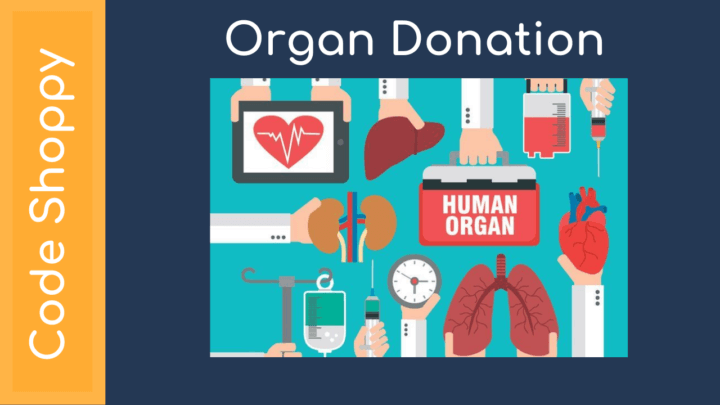The proposedsystem is an organ donation decentralized app using blockchain technology. Itwould be a web application for patients to register their information— most importantly medical ID, blood type, organ type andstate. The system would work on a first-in, first-out basis unless a patient isin critical condition.
Donating an organ ororgans is one of the most noble act of humanity, saving the lives of those whosuffer serious maladies that require organ transplantation. When the human bodybecomes infected with disease crucial organs in the body, such as the kidney,lungs, heart, pancreas, liver, or intestines become non- functional, makinglife unbearable usually leading to death. Anyone can become exposed to adisease. In fact, a person is added tothe national organ waiting list in Saudi Arabia every ten minutes. Making anorgan donation is a crucial contribution to saving lives. Organtransplantation operations began in the 1950s and revolutionized medicine, savinginnumerable lives and making life easier for those who suffer long termdiseases. In the case of donors, they may be alive, dead, or in some countries,brain dead. Any live person must be perfectly healthy to donate, and donation is only allowed for organs that will not affect their health, such as a kidney, liver, lungs or bone marrow. There are no maximum or minimum age limits for organ donation, but the organ must be in a good condition and its loss will not present a threat to life. In most countries minors can only donate organs if one of their guardians gives consent. In the case of deceased organ donations, a donor must have given their consent while they were still alive, usually by signing their name in the donation system. The Saudi Centre for Transplantation handles the processes related to organ donation and transplantation.(read more)

The problem facing organ donation systems around the world is thesame, more people on the waiting list than actual donors, and the gap iswidening each year. The length of the waiting list may mean patients die beforedonation takes place.
Modern systems responsible for gathering organ donations andhandling processes leading up to organ transplantations can lack transparency.They are also usually slow, which is intolerable in such a serious, life threatening matter. These systems are rarely up-to-date with theminimum security requirements, and with improvements in modern computerprocessing power and algorithms, it is best to take a cautious approach toavoid future complications. Recently there has been an increase in securitybreaches, compromising user privacy and the integrity of the system. Modernsystems handle and manage data via traditional databases, however mosthospitals, health ministries and other medical facilities do not have a uniformsystem for communicating data.